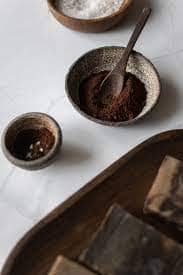Whether it’s to kickstart our day or help us stay awake during long hours, many of us can’t resist a good cup of coffee. But have you ever wondered does drinking coffee dry out your skin ?
What Does Caffeine Do To Your Skin?

Caffeine, a popular stimulant predominantly found in tea, coffee, and many energy drinks, has various effects on the skin. Some of these effects are beneficial when applied topically, while consuming caffeine in large amounts might have less favorable effects. Here’s a closer look at how caffeine interacts with our skin:
Dehydration:
Consuming large amounts of caffeine can act as a diuretic, which promotes fluid loss through urination. This can lead to dehydration. When skin becomes dehydrated, it might appear dry or flaky, feel tight, and fine lines or wrinkles can become more pronounced.
Increased Blood Flow:
One of the reasons caffeine is used in skincare products, especially eye creams, is its ability to increase blood flow. This can help reduce the appearance of puffiness and dark circles under the eyes.
Antioxidant Properties:
Caffeine has antioxidant properties that can help protect the skin from free radicals, unstable molecules that can cause oxidative stress and damage to the skin, leading to premature aging.
Anti-inflammatory Effects:
Caffeine has anti-inflammatory properties that can reduce redness and inflammation. This is particularly helpful for conditions like rosacea or puffy eyes.
Oil Production and Acne:
Drinking excessive amounts of caffeinated beverages might increase the production of cortisol, a stress hormone. Higher cortisol levels can stimulate the sebaceous glands to produce more oil, potentially leading to oily skin and acne breakouts.
Constriction of Blood Vessels:
Caffeine can cause blood vessels to constrict, which might reduce redness temporarily. This is another reason it’s commonly found in eye creams and serums to decrease the appearance of tired, puffy eyes.
Cellulite Reduction:
Some studies suggest that topical caffeine applications might temporarily reduce the appearance of cellulite by dehydrating fat cells and increasing circulation, although the results might be short-lived and not drastic.
Increased Sensitivity:
For some individuals, especially those with sensitive skin, products containing caffeine might cause irritation or increased sensitivity.
Potential for Disrupted Sleep:
While not a direct skin effect, it’s worth noting that caffeine can disrupt sleep patterns if consumed late in the day. Poor sleep can negatively impact skin health, leading to dullness, increased signs of aging, and even breakouts.
Can Drinking Coffee Dehydrate the Skin?
Yes, drinking coffee can contribute to dehydration, which can, in turn, affect the skin. Here’s how:
Diuretic Effect: Coffee contains caffeine, which is a natural diuretic. Diuretics increase urine production, which can lead to a loss of fluids in the body. When the body loses more fluid than it takes in, it can lead to dehydration.
Dehydrated Skin Appearance: When the body is dehydrated, the skin can become more vulnerable to skin disorders and premature wrinkling. Dehydrated skin may appear dull, feel tight, and fine lines or wrinkles may become more noticeable. The skin might also lose its plumpness and elasticity.
Compromised Skin Barrier: Dehydration can weaken the skin’s protective barrier, making it more susceptible to external irritants, allergens, and pathogens. This can lead to increased sensitivity, redness, and potential for skin issues.
Effects on Oil Production: Dehydration can lead to an increase in oil (sebum) production as the skin tries to compensate. An overproduction of oil can result in a greasy feel, clogged pores, and potential breakouts.
Impact on Skin Nutrients: Proper hydration ensures that nutrients are efficiently delivered to the skin cells. Dehydration can affect this process, leading to diminished skin health.
Moderate coffee consumption is unlikely to dehydrate the skin significantly, especially if one is also consuming adequate amounts of water throughout the day. The key is balance. If you enjoy drinking coffee, ensure you’re also drinking plenty of water to counteract its diuretic effects and keep your skin hydrated.
Other factors, like the environment (wind, sun, dry air), diet, and skincare products, can also contribute to skin hydration levels. If you’re concerned about skin dehydration or the effects of coffee on your skin, it might be beneficial to consult with a dermatologist.
Is Coffee An Antioxidant Hero or a Skincare Villain?

Ah, coffee – the aromatic beverage many of us love and rely upon to start our day. For all its merits as a wake-me-up drink, the impact of coffee on skin health is multifaceted. Coffee’s primary component, caffeine, along with other compounds, can make coffee both an antioxidant hero and, if over-consumed, a potential skincare villain. Let’s delve into both aspects.
A. Coffee as an Antioxidant Hero:
- Rich in Antioxidants: Coffee is a significant source of antioxidants. Antioxidants play a crucial role in neutralizing harmful free radicals in the body, which can cause oxidative stress and premature aging of the skin.
- Protection Against Environmental Damage: The antioxidants in coffee can help protect the skin against environmental damages, such as UV rays and pollution. This protective shield can assist in preventing the onset of signs of aging like fine lines, wrinkles, and dark spots.
- Anti-inflammatory Properties: Caffeine, when applied topically, has anti-inflammatory effects that can help reduce redness and puffiness. This is particularly beneficial for the delicate skin around the eyes.
- Enhanced Blood Circulation: Caffeine promotes better blood flow when applied topically. This can brighten the skin and reduce the appearance of dark circles and puffiness.
B. Coffee as a Skincare Villain:
- Potential for Dehydration: Coffee can act as a diuretic, especially in large amounts. This can lead to dehydration, which can make the skin appear dry, flaky, and less vibrant.
- Stimulating Oil Production: High caffeine consumption can spike cortisol levels, the body’s main stress hormone. Increased cortisol can prompt the skin to produce more oil, leading to an oily complexion and potential acne breakouts.
- Disrupted Sleep Patterns: Consuming coffee, especially later in the day, can disrupt sleep patterns. Quality sleep is paramount for skin health and regeneration. Disrupted sleep can lead to a tired appearance, dark circles, and even acne.
- Glycation: If you’re adding a lot of sugar to your coffee, you might be promoting glycation, a process where sugar molecules bond with proteins, including collagen. This can make the skin less supple and more prone to wrinkles.
While a morning cup of coffee can provide antioxidant benefits, overconsumption or heavily sweetened coffee might tip the scales towards the ‘villain’ side. As with most things related to skincare, individual experiences can vary. It’s essential to observe how your skin reacts and adjust your coffee habit accordingly. If in doubt, consulting with a dermatologist can offer personalized advice tailored to your skin’s unique needs.
Why Might My Skin Breakout Post-Coffee?
For some, coffee might lead to breakouts and acne. Coffee can cause a spike in stress hormones like cortisol, which increases the amount of oil produced by the skin. An overproduction of oil or sebum can clog pores, leading to acne. Moreover, poor quality coffee or coffee with added sugars and dairy might also exacerbate skin concerns.
Caffeine Topically: Good or Bad?
Applying caffeine topically can be beneficial for the skin. Topical products with caffeine can reduce redness, treat puffiness under the eyes, and enhance blood flow, giving a more youthful, radiant appearance. It’s a popular ingredient in many skincare products due to its antioxidant and anti-inflammatory properties.
Does Tea and Coffee Affect Your Skin Differently?
While both tea and coffee contain caffeine, their effects on the skin can vary. Tea, especially green tea, has antioxidant properties that can be beneficial for the skin. the caffeine content in tea is generally less than that in coffee. Hence, tea might have milder diuretic effects, leading to less dehydration from coffee.
How Much Caffeine is Too Much for Healthy Skin?
Drinking one to two cups of coffee daily might not have significant negative side effects on your skin. overconsumption of caffeine can dehydrate the skin and negatively affect your sleep, impacting skin health. It’s crucial to monitor your caffeine intake and observe how your skin reacts.
Can Coffee Raise Your Stress and Impact Your Skin?
Excessive coffee consumption can raise your stress levels. High levels of the stress hormone, cortisol, can cause the skin to produce more oil, leading to conditions like acne and rosacea. While a morning cup might make you feel awake, too much coffee can have detrimental effects on your body and skin.
The Role of Coffee Beans in Skincare Products
Coffee beans are increasingly popular in skincare due to their antioxidant and anti-inflammatory properties. Ground coffee beans can be found in exfoliating products, helping remove dead skin cells and rejuvenating the skin. When applied topically, the benefits of caffeine can be directly absorbed by the skin.
Should You Change How You Take Your Coffee?
If you suspect your coffee habit might be negatively affecting your skin, consider the additives. Sugars, dairy, and syrups can exacerbate skin conditions. Switching to plain black coffee or reducing your caffeine intake can make a difference.
In Summary:
- Coffee can dehydrate the skin and potentially lead to breakouts.
- Topical caffeine products can offer several skin benefits.
- Balance your coffee intake with water to prevent dehydration.
- Be wary of additives in your coffee that might exacerbate skin conditions.
- Moderate your caffeine consumption and monitor its effects on your skin.
The relationship between coffee and skin health is complex. While there are clear benefits, especially when caffeine is applied topically, excessive consumption might not be the best for skin health. As with most things, moderation is key. If you have concerns, consult with a dermatologist for tailored advice.
FAQ:
Q: Will my skin improve if I quit coffee?
A: It varies per person; some notice positive skin changes, while others see no difference.
Q: Does caffeine dehydrate you?
A: Yes, caffeine can act as a diuretic, potentially leading to dehydration if not counterbalanced with water.
Q: Can coffee change skin tone?
A: Directly, no, but its effects (like dehydration or improved circulation) might influence skin appearance.


Leave a Reply